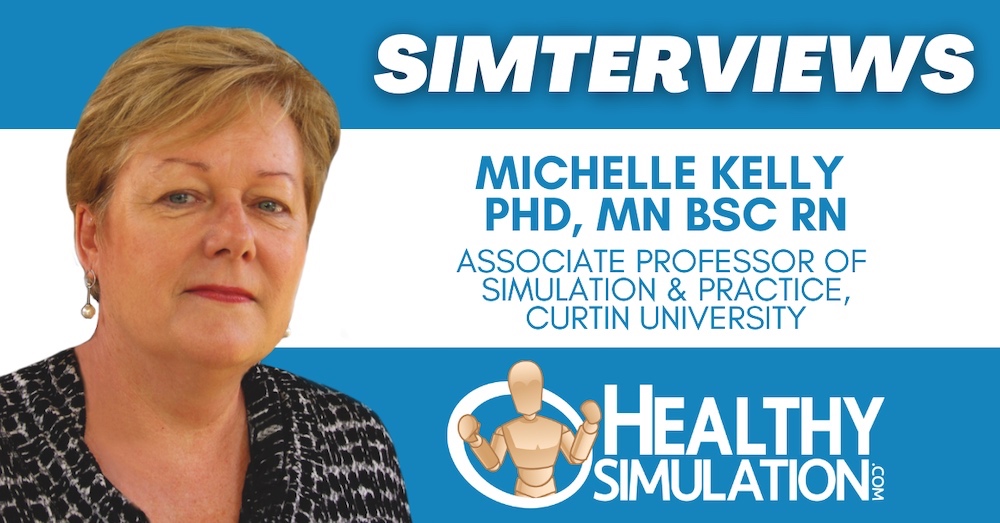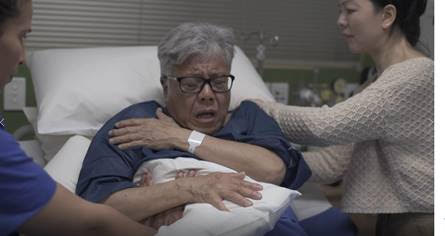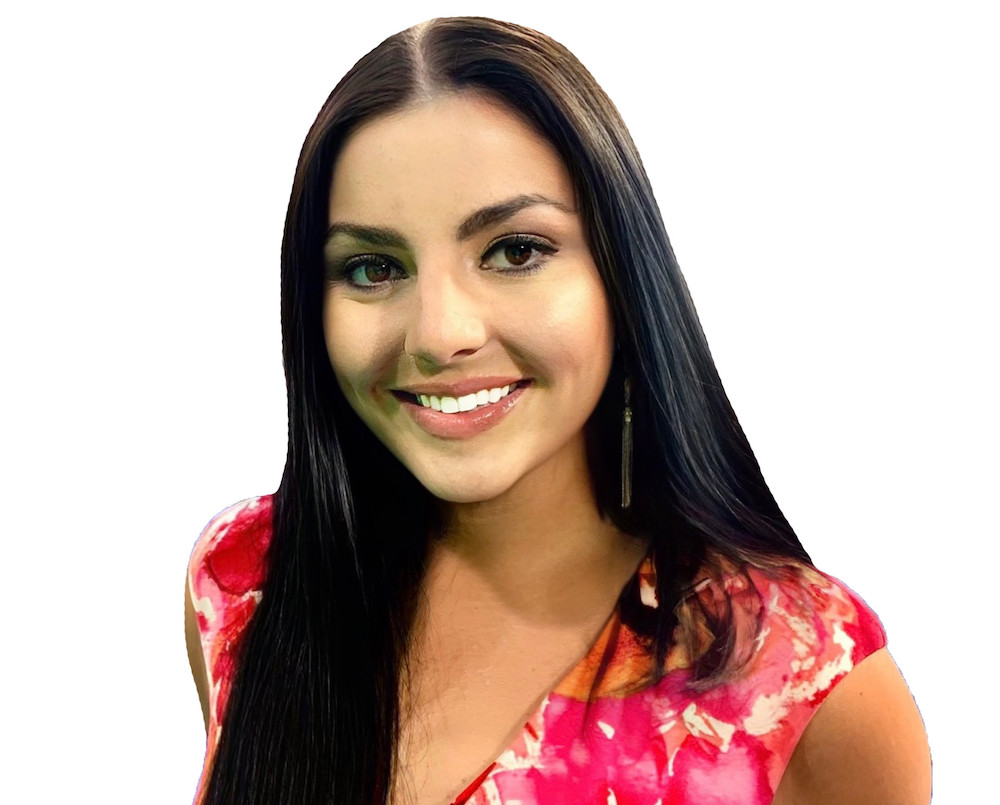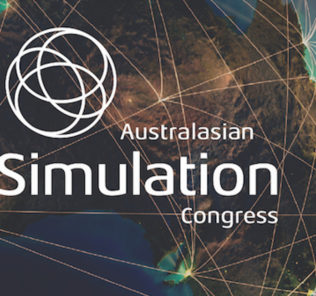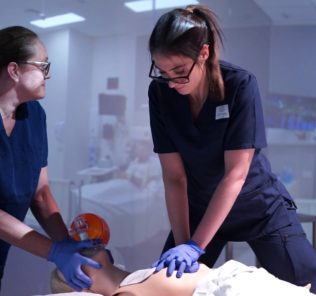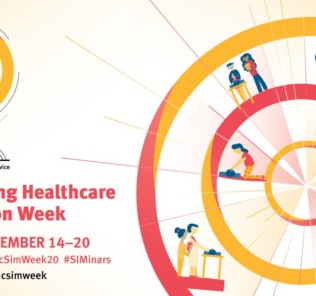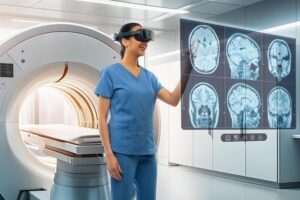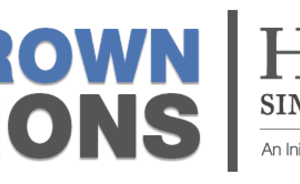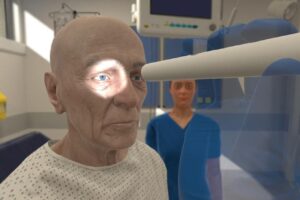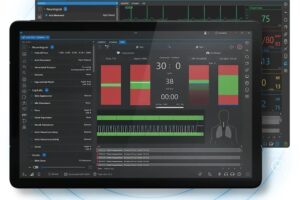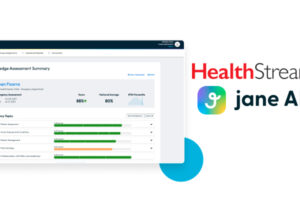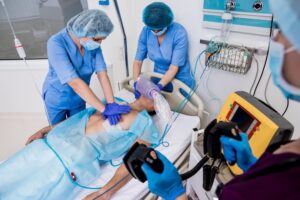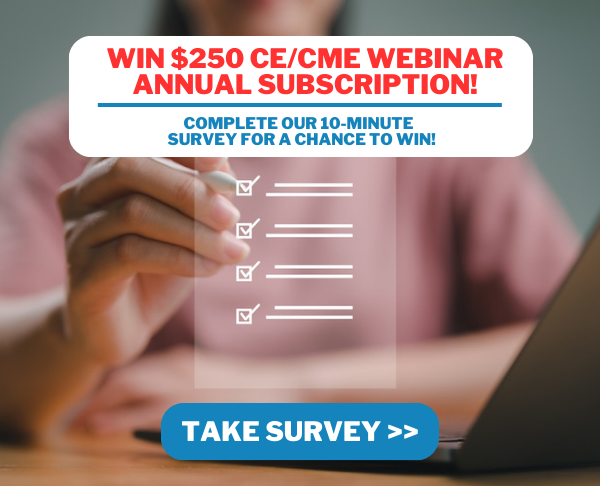Simterviews: Dr. Michelle Kelly | Associate Professor of Simulation & Practice, Curtin University
This week, HealthySimulation.com’s new healthcare simulation expert interview series “Simterviews” speaks with Dr. Michelle Kelly, PhD, MN, BSc, RN. She is an Associate Professor of Simulation and Practice at the Curtin University School of Nursing. Throughout her career, kelly has been appointed to leadership positions at two universities with responsibilities for building and integrating healthcare simulation based education into curricula, and designing contemporary clinical simulation learning spaces. Her previous scholarly leadership roles include: past Chair of the Australian Society for Simulation in Healthcare; Vice-Chair of the Society for Simulation in Healthcare (SSH) Research Committee; editorial board member for Clinical Simulation in Nursing and Associate Editor for Advances in Simulation.
Kelly has also authored over 71 publications, 9 book chapters and edited a special issue on clinical simulation for Collegian in 2012. She was one of four editors for “Healthcare simulation education: Evidence, theory and practice” (Wiley). Her primary research areas include: clinical judgement, cultural considerations, pain assessment and patient discharge conversations to enhance self-management.
In this Simterview, HealthySimulation.com’s Content Director Lindsey Nolen asks Kelly about what needs to happen for healthcare simulation to reach the next level of utilization, and the many challenges associated with transitioning to online learning during COVID-19. Kelly also shares her work rehearsing conversations about end of life care for healthcare simulation education and training.
Sponsored Content:
HealthySimulation.com: What needs to happen for simulation to move to the next level of utilization?
Dr. Kelly: It’s easy to answer the question, not so easy to make things happen. People who work, practice and research in simulation understand the power and the benefits for participants in their learning. The people who don’t necessarily understand it that well, and think that it’s just CPR, are the financial people and the managers of whatever institution you’re working in. I work in a university, so it can be your own university managers and not necessarily the first level up if you’ve worked fairly closely with them; it’s the levels above them. To make them aware, you really have to demonstrate and take it to them. I know that some people have invited managers to the clinical simulation space to actually have a look from a control room or from a distant space, but that’s not always possible. I like to do a visual and create a short marketing-type audiovisual clip on what healthcare simulation is. That shows the variety and the engagement that is a step toward a greater awareness by those who hold the purse strings and make the decisions at a high level.
HealthySimulation.com: What is your greatest advice for those already engaged in simulation, who want to continue to maximize their outcomes and ROI moving forward?
Dr. Kelly: My greatest advice would be to pair up with more experienced people and to listen. I also advise for there to be coproduction of activities, localizing it to people’s own context, whether that be in different countries or different regions; within the same country is really important. This is because if you get that stakeholder buy-in and share your understood branding and expertise of how to really make things slick and impactful, then they get it. It’s when they move to understanding what this is all about now, that you can start to get that critical mass.
Sponsored Content:
It’s also important along the way to be looking at evaluating, researching and publishing your work. For academics, publishing in peer reviewed journals is the currency, if you like, within academia and for promotion. That aside, it’s also important to share the good, the bad and the ugly of what you’re doing, so that others can incorporate that expertise into building their own communities of simulation practice.
HealthySimulation.com: What is something that excites you about the current healthcare simulation industry? (A book, a website, a product, a service, research, conference, etc.)
Dr. Kelly: I’m leading and supporting quite a few research projects, and there are gaps I see in our curriculum where you can create and research as well as integrate new perspectives on how healthcare simulation can contribute. One of those is exploring the factors that influence assessment of pain, and making students aware of their own personal and professional biases. I’ve created some audiovisual clips with actors and also consumers.
So healthcare consumers, and a nurse who is also an actor and a director have helped put this together, as well as content experts and clinicians. The impact of the resource has been really positive. There are a variety of uses of these resources that you can employ as primers for clinical, primers for a clinical simulation, where they actually then go in and have an interaction to assess someone’s pain.
That’s one of the projects that currently has a lot of data. About four manuscripts are ready to have some time and attention paid to them. The other things that are in the pipeline are two book chapters. For one there are four editors: three from the United States and one Australian editor. Jared Kutzin is the lead editor of the book along with Connie Lopez; KT Waxman; and Deb Kiegaldie from Victoria, Australia. I’m leading a chapter on international perspectives for nursing undergrad nursing simulation. I was able to negotiate rather than to add on, (by the way, this is what we’re doing in the rest of the world). I explain, “Really, the rest of the world are doing a lot of what the U.S. people in simulation are doing.” What we’re presenting is a case study of what the problems were, how we address them, then the lessons learned. I think that will illustrate the breadth and depth of what is happening in other countries for readers predominantly for the U.S. market. I’m imagining this book will provide a much broader insight into what everyone else is doing, and ideas and challenges that are country- or culture-specific.
HealthySimulation.com: How has your institution responded to COVID-19? What lessons were learned?
Dr. Kelly: We’ve had a very unique situation in Australia. Early on there was a fairly hard shutdown, and that has meant that students couldn’t go on clinical. We couldn’t do anything at the university — not unlike other countries, I imagine. We had about a week to switch everything to online mode. Now we’re not as fortunate to have access to as many online or virtual simulation products, so staff we’re getting very creative and doing sim through the learning management system. They were doing some online, live, either synchronous or asynchronous demonstrations of clinical skills predominantly, because this multi-participant simulation was really a bit difficult for us to get up and happening with one week of preparation.
I was acting in a Director of Learning and Teaching role for all of last year. That really took me away from the clinical simulation focus. There was a lot happening in changing assessment types, making in-flight decisions. I guess the lessons learned are that we are delivering online content very well, and really creating our own content rather than relying on educational or ready-made products. But again, I think that’s important for the local context that I mentioned before. Practice in Australia for nursing and for medicine is different from the U.S. We’re probably more aligned with the U.K., which is where most of our origins arise. I think the bottom line is that local context is really important.
HealthySimulation.com: What recommendations do you have for others in terms of overcoming COVID-19 challenges?
Dr. Kelly: I think learning from your own experiences not just within your country, but looking at what others have done and unpacking that, and seeing what can be applicable for your own context. During COVID, I tell you, there was just an overwhelming number of emails and promotions coming through. Some of those I passed on to academics within my School and the Faculty of Health Sciences that I knew were in the healthcare simulation space, but honestly, they were just overwhelmed. It was really getting the day-to-day business done rather than looking at the add-ons, which I guess they thought the clinical simulation was about. We were trying to make sure that students were prepped and had all the requirements for going on clinical. We put together different schedules to get students gradually back onto campus to be able to update their skills, so that they could go out and be safe in practice. It really upended our whole program, and there’s still a lot of clinical backlog, and that impacts on student progression, completing their course and joining the workforce. That’s really been our priority.
HealthySimulation.com: Is there anything else you think healthcare simulation educators, administrators or learners should know?
Dr. Kelly: I’m really hopeful for advancing clinical simulation because we’ve got some grants at the moment, which are hard to come by. We’re looking at creating healthcare simulations which help with rehearsing conversations about end-of-life care. A Ph.D. student who I’ve just finished supervising has had a focus on organ and tissue donation. We worked with actors to create a healthcare simulation program to supplement a national program to help designated organ donor requesters use the correct language, and to be able to separate the brain death conversation from the organ donation request conversation. I see that as really, the more simpler the level of tech, the higher the emotional and psychological fidelity.
I guess I’ve come full circle. Everyone starts with the big tech, but the Hearing Voices healthcare simulation for mental health, using MP3 players to listen to sounds and voices that were created by people who are voice hearers, is simple. Things like that can be very powerful. I think it’s really important to rehearse those, because you might see people starting conversations like this in clinical settings, and it may not be so good. It depends where they learned their craft from, and how to open and close those sorts of conversations. I’m really focused on respect and privacy, which starts even with the opening conversation between a clinician and a patient. It’s calling them by, “Mr. So-and-so, and how would you like me to address you?” It’s that simple start, which I think can be challenging for different generations, rather than coming into a room going, “Hey, how are you doing?” So it might just be that I’m a little bit of a stickler for those sorts of good manners. I think professional manners are really, really important.
Subscribe Now for More Great Simterviews!
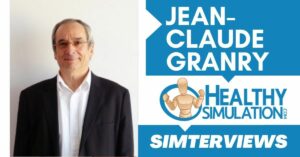
Simterview Avec le Professeur Jean Claude Granry, Pionnier Français de la Simulation en Santé
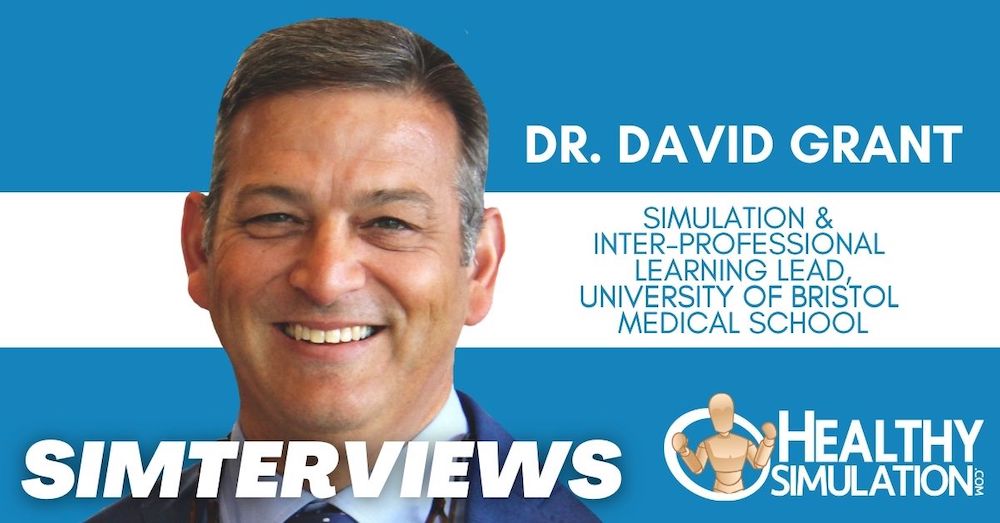
Simterviews: Dr. David Grant | Simulation Learning Lead, University of Bristol Medical School
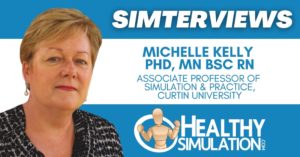
Simterviews: Dr. Michelle Kelly | Associate Professor of Simulation & Practice, Curtin University
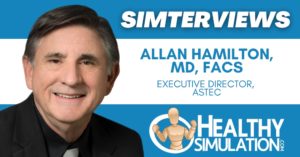
Simterviews: Dr. Allan Hamilton | Executive Director, ASTEC
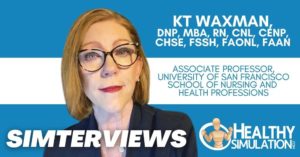
Simterviews: Dr. KT Waxman | Associate Professor at the Associate Professor at the University of San Francisco School of Nursing and Health Professions
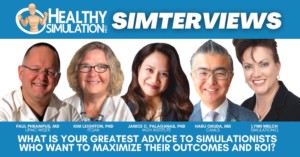
Simterviews: Medical Simulation Experts Discuss Ways to Maximize ROI
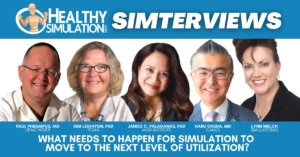
Simterviews: Medical Simulation Experts Discuss Next Level of Healthcare Simulation Utilization
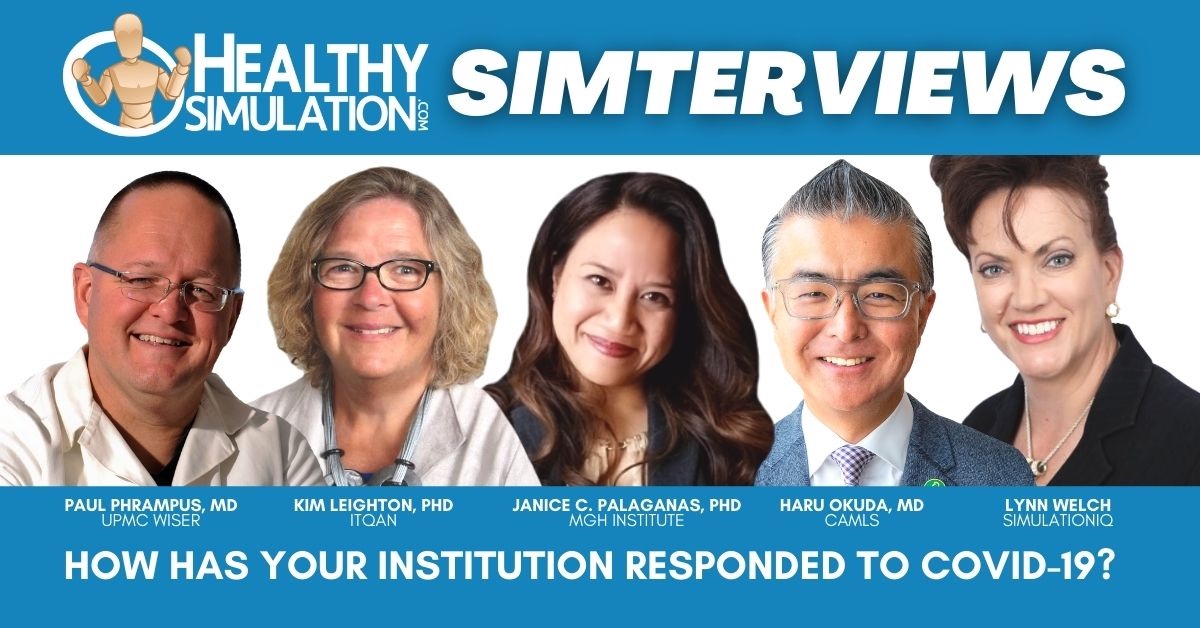
Simterviews: Medical Simulation Experts Discuss COVID-19 Responses
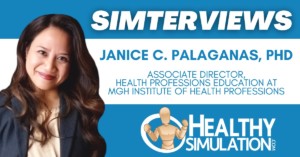
Simterviews: Dr. Janice Palaganas | Associate Director of PhD Program, MGH Institute
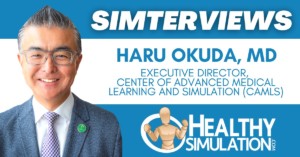
Simterviews: Dr. Haru Okuda | Executive Director, CAMLS
Lindsey Nolen is the Content Director for HealthySimulation.com. She is an award-winning journalist with years of experience writing about the many different facets of healthcare, including clinical simulation education and training. She also helped create content for the healthcare career information website, CareersinHealthcare.com.
Sponsored Content:



